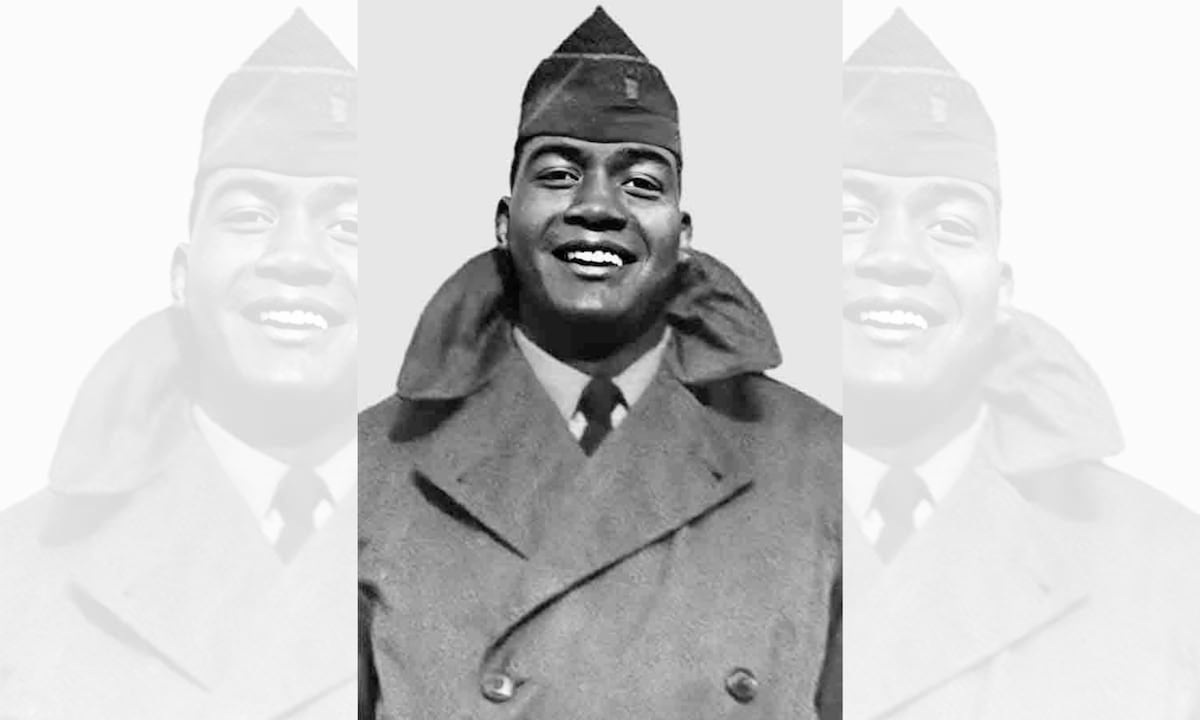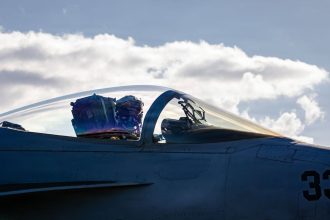With the decisive battles of 1950 through 1951 behind it, the Korean War simmered down to negotiations toward an armistice, in parallel with a seemingly endless series of minor melees over various strategic scraps of higher-altitude real estate.
While United Nations and communist forces argued daily at Panmunjom — a village in the Demilitarized Zone (DMZ) between North and South Korea — the soldiers who fought for those hillocks ultimately tallied up greater casualties than had been suffered in the first two years. One such embattled objective was Hill 420, called Outpost Harry by the Americans and Haros (“Charon,” the mythical ferryman who carried dead souls to Hades) by the Greek soldiers who fought alongside them in June 1953. The hill may have been minor, but it produced a major hero in Private First Class Charles R. Johnson.
Charles Robert Johnson was born in Aug. 11, 1932, in Millbrook, New York, to Robert and Pearl Johnson. “Buddy,” as his friends called him, spent three years in Millbrook High School, during which he lettered in football, excelled in baseball and basketball, played trumpet and sang in the choir. Johnson finished his senior year in Arlington, LaGrangeville, where he was elected class vice president. In 1951 he went to Howard University, where he joined the football team, but in 1952 he had to postpone development of his potential, as he was drafted into the United States Army.
His mother pleaded for him to volunteer for a musician’s specialty, but he chose infantry, declaring “If other mothers’ sons have to fight I feel I need to do the same thing.”
After training, Johnson was assigned as a Browning automatic rifleman to Company B, 15th Regiment, 3rd Infantry Division, which in June 1953 was defending Outpost Harry with the Greek “Sparta” Battalion, led by Lt. Col. Georgios Koumanakos.
Both units had proud traditions to uphold. The Greeks’ reference to the Battle of Thermopylae in 480 BC requires no further introduction. The 3rd Division’s role in halting the last German offensive of World War I earned it the sobriquet of “Rock of the Marne,” and it had produced some of the most outstanding soldiers of World War II, including the much-decorated Audie Murphy. Johnson’s presence in the 3rd Division’s ranks represented a historic, overdue addition to its traditions: the racial integration of the U.S. Army.
Outpost Harry was about 60 miles northeast of Seoul, on a direct route toward the South Korean capital, in a hotly embattled area called the Iron Triangle. It was of strategic importance to both sides and on June 10 the Chinese launched a nighttime attack — outnumbering the outpost’s defenders by 30 to 1.
On the night of June 11, Johnson’s squad faced a serious attempt to overrun its trenches and bunkers by an estimated 3,000 Chinese. A direct artillery hit on the second bunker wounded Johnson early in the fight, but he ignored it as he roamed the field, administering first aid to seriously wounded and injured troops, and dragging disabled a soldier to a secure bunker.
He was occasionally interrupted by Chinese troops fighting their way into his defensive position, but he engaged them in hand-to-hand combat, killing several. One wounded squad-mate who he dragged to safety was a classmate in Arlington High, then serving as his BAR assistant, Pvt. Donald Dingee.
Dingee would survive the melee and later noted that “the word hesitation was not in [Johnson’s] vocabulary.”
During a momentary lull in the fighting, Johnson left the second bunker and went searching for stray American weapons and ammunition, then returned to dole what he found to re-arm anyone in need. When the Chinese regrouped for another assault, Johnson recognized that his squad’s position was untenable.
Exiting his bunker, he placed himself between his men and the oncoming Chinese, telling his comrades that he would hold off the enemy as best he could. Shortly afterward, in the wee hours of June 12, a Chinese grenade finally succeeded in killing Johnson. Dingee and other troops subsequently testified that his sacrifice saved the lives of nine to 10 soldiers.
The see-saw struggle for Outpost Harry continued until June 18, when the Chinese withdrew for the last time. The UN defenders’ casualties totaled 102 killed, 553 wounded and 44 missing. Chinese losses were estimated at 1,450 and 3,800 wounded, which General Xiao reported left his division combat ineffective. Negotiations resumed while the opposing generals looked for a new piece of ground to contest.
It took 57 years, but on Sept. 25, 2010, Pfc. Charles R. Johnson was posthumously awarded the Silver Star for his contribution to the 3rd Infantry Division. That later came under reconsideration, however, and on Jan. 3, 2025, President Joe Biden presented a posthumous Medal of Honor to Johnson’s sister, Juanita P. Mendez.
Among several other honors, a bronze statue of his rescuing Don Dingee, sculpted by Arden Witherwax, highlights Charlie Johnson Hall in Arlington High School. Another is the Johnson Fitness Center in Fort Stewart, Georgia. Johnson’s own remains are interred in Nine Partners Cemetery, Millbrook, New York.
Read the full article here








